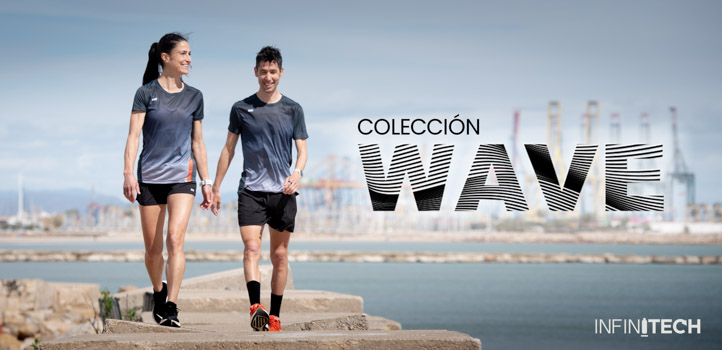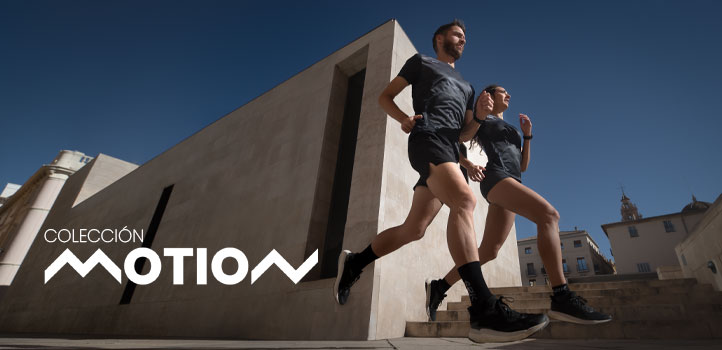Subscribe to our newsletter to find out about all the news and promotions, and automatically receive a welcome discount coupon in your email.

Pubalgia, a complicated pathology to treat
by David Valenzuela Diaz
Pubalgia is an injury that causes pain in the area of the pubis, with radiation to the inguinal area or lower abdomen. Is a common injury or pathology in athletes who perform repetitive leg movements, as is the case of athletes and runners.
Pubalgia has a very abstract medical diagnosis since it does not define who or what causes the injury. For me it is the most complicated injury to treat and we must be precise in the diagnosis.
Aspects to take into account when evaluating pubalgia
The hip is a very important joint in impact sports. It is the bone structure influenced by a crossroads of muscles that can alter balance and generate various pathologies. To explain it with a graphic example: it is like the rope game in which both sides are pulled to see who wins, with the difference that the center is pulled in different directions by the force of the muscles inserted in the area. .
This center, furthermore, is the border that unites the lower limbs with the upper limbs, generating an imbalance that begins with a slight discomfort at the end of the workout, followed by continuous pain in the area and, suddenly, when sneezing or getting off the couch. car or when turning over in bed, “it makes a mess” in the form of intense pain.
Normally the pain comes from a tendinopathy associated with the tendons that, due to excess or defect, are suffering an inadequate load that they are not able to transmit. And if it is due to excess, the problem is that the bone can break; If this happens, then we are talking about a bone injury, a dynamic osteopathy of the pubis, which directly affects the structure that supports everything else and things become complicated in time and symptoms.

In my opinion and based on all my years of experience as a sports physiotherapist, pubalgia is one of the most difficult injuries to treat if there is no good physiotherapy diagnosis.
Symptoms that can make us suspect the existence of pubalgia
There are various symptoms that can make us think of pubalgia, but I think it is advisable to highlight the following:
- Pain in the pubic area.
- Pain when sneezing and turning over in bed.
- Pain when opening the legs.
- Heaviness in legs.
- Not being able to do speed exercises.
- Muscular weakness.
- Lack of hip mobility.
- Almost not being able to walk without pain.
What to do if we think we suffer from pubalgia?
If you identify some of the symptoms described above that make you think about the possibility of suffering from pubalgia, the immediate decision should be to put yourself in the hands of a specialist to determine the steps to follow.
My experience with this pathology leads me to determine the following steps:
- Assess with an x-ray if there is bone involvement.
- Assess with an ultrasound if there is any muscle or tendon involvement or both.
- Assess through physiotherapy tests which muscles are affected.
- Assess if there is a dysmetria in the lower limb.
- Assessment of the postural sensor by a podiatrist.
- Understand what structure is damaged and target treatment time.
- Go to a sports physiotherapist to plan work according to biomechanics adaptive to the injury.

What muscles can affect this imbalance?
- ABS. Muscles that pull the pelvic area towards the head.
- PSOAS. Hip flexor muscle that conditions posture.
- GLUTEUS MAJOR. Hip extensor muscle that conditions posture.
- ISCHIOTIBIALS. Muscles that position the hip and flex the knee.
- ADDUCTORS. Muscles that approximate the leg and the insertions go directly to the pubis.
That is, it conditions all the muscles, generating a contracture of all the muscles that are inserted there. This contracture creates a point of pain that makes the body more comfortable in flexion and makes it difficult or impossible to stay upright. It is, in short, “grandfather” biomechanics in a young person.
If you think you are suffering from pubalgia, see a physiotherapist immediately.
Pubalgia is an injury that if “treated” with Google worsens quickly, so my advice is to go to the physiotherapist immediately, as happens with other injuries such as tibial periostitis, Plantar fasciitis or the tendinopathy.

Taking into account that the healing time for tendinopathy is indefinite, it must be clear that this type of injury is treated with exercise and that it will be a long process.
The basis for the cure of this pathology is to plan the sports readaptation well, being aware that the objective is not to compete but to train. And achieve with objective data to improve the quality of movement and the functionality in strength, resistance and mobility of the affected muscles.
Pubalgia is an injury that requires daily physical therapy work to cure.


Text to 42K of :
David Valenzuela Diaz
Physiotherapist at BOX55
David Valenzuela Díaz has a degree in physiotherapy from the Cardenal Herrera CEU University and a Master's degree in assessment, physiotherapy and sports rehabilitation from the University of Valencia. He is CEO of BOX55 Fisioterapia y Academia SL, of BOX55 Academy and of Valobando SL Functional Biomechanical Analysis.
David Valenzuela, CEO of BOX55
Other entries by David Valenzuela Díaz
42K Best sellers in the last 15 days.
42K · All rights reserved


Comments
Post a first comment for this entry!